✓ Free home delivery from €75 (BE) ✓ Delivered within 2-3 working days
Satemwa
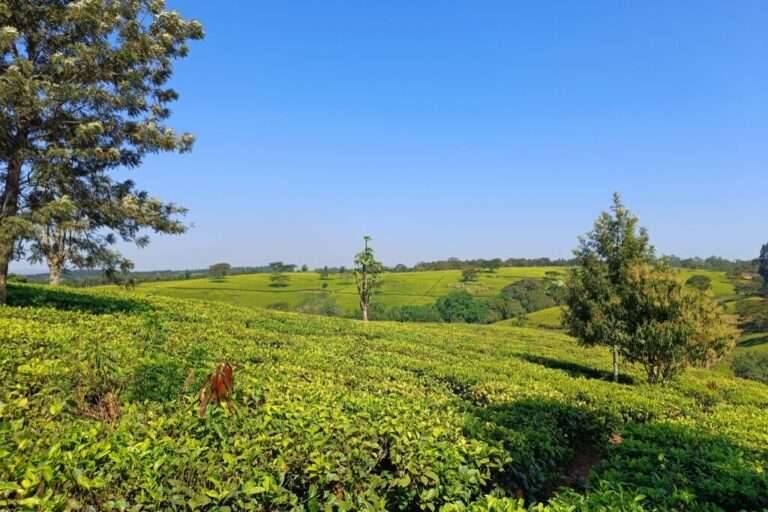
SATEMWA TEA ESTATE
Malawi, for many an unknown location on the world map. Yet it is a country with beautiful landscapes, lush forests, imposing mountains and great biodiversity. But the African country also has a number of challenges: poverty and deforestation take their toll, COVID has dealt a blow to (limited) tourism, and in March 2023, typhoon Freddy wreaked havoc for 4 weeks.
Tucked away in the Shire Highlands (Thyolo district) is the Satemwa Tea Estate. Upon entering the estate, you immediately find yourself in a fairytale landscape: unique views, rolling tea gardens and pristine mahogany forests. Here lies one of Malawi’s oldest and most respected tea producers.
A UNIQUE ESTATE
In 1923, the young Scot MacLean Kay bought the original farm and transformed it from a tobacco estate into a tea nursery. The first fields were planted in 1926 and construction of its own factory followed a few years later. This has undergone many technological changes over the years, but constant passion and care have resulted in Satemwa being a unique estate today.
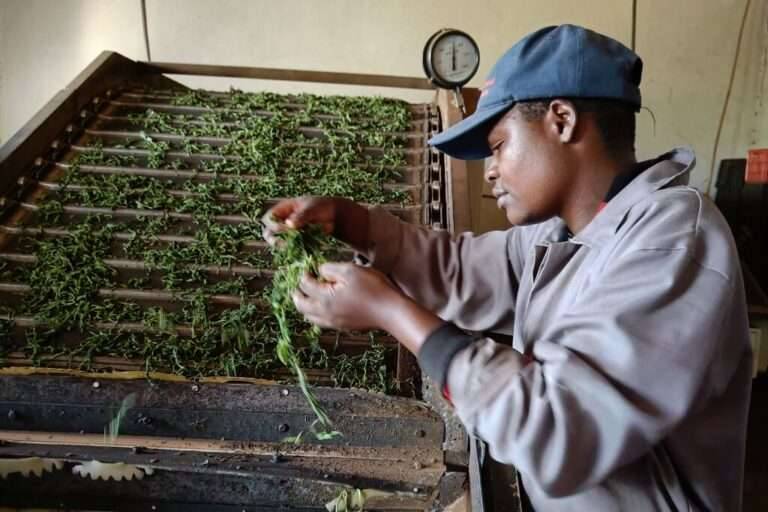

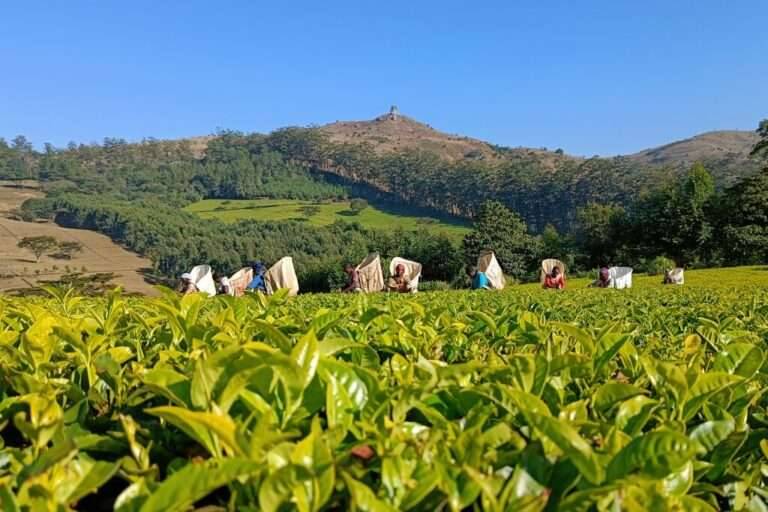
CTC
The tea industry is of great importance to Malawi, which remains one of the poorest countries in the world with little economic activity. Satemwa employs about 1,800 people, all tea leaves are picked by hand here. A deliberate choice, as it creates jobs.
Much of the production is destined for the CTC (cut-tear-curl) market. Major producers, including Pickwick, Lipton and Yellow Label, blend the black tea into a blend, which they then sell further in their well-known tea bags. But competition is tough and prices are under severe pressure. Mechanisation is the only way out, at the expense of… jobs.
SHIFTING FOCUS TO SPECIALTY TEA
Alexander Kay, third-generation tea farmer and grandson of founder MacLean Kay, is in charge of Satemwa today. He decided to shift the focus from CTC to the production of speciality teas. With this, he wants to generate more income for the plantation as well as draw attention to craft and quality. Because processing this special tea is more complex and you need different kinds of skills. More importantly, it allows Satemwa to keep people employed.
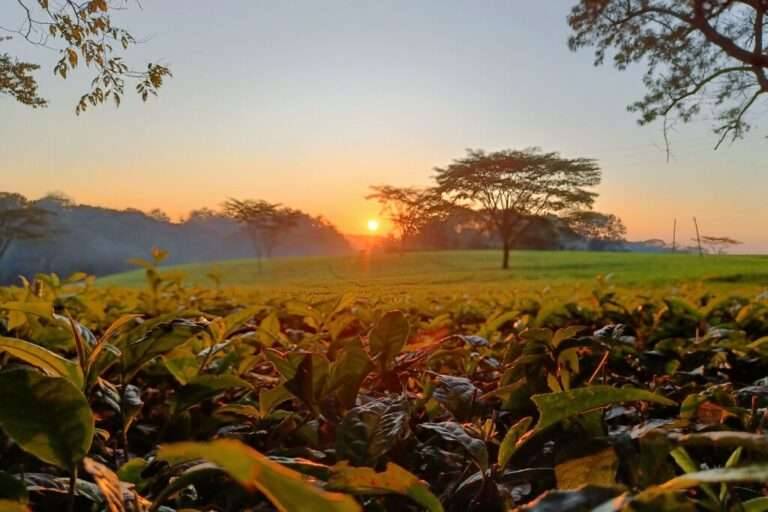

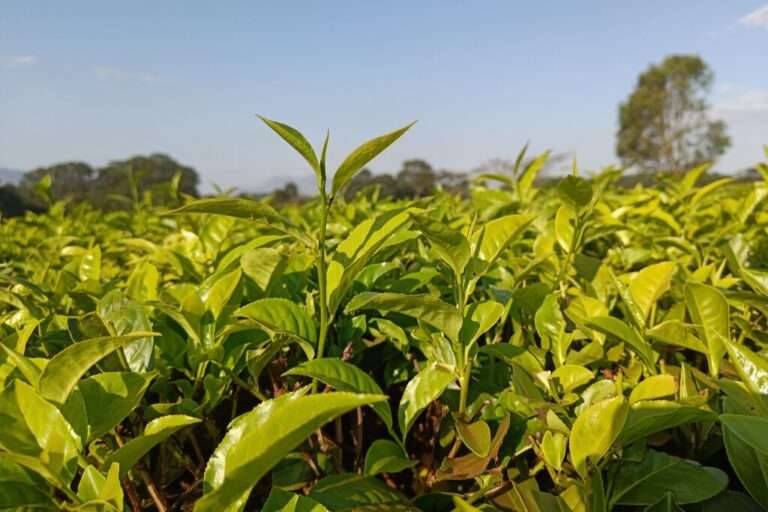
EFFECTS OF CLIMATE CHANGE
Meanwhile, the effects of climate change are clearly visible in Malawi, witness the recent passage of typhoon Freddy. Satemwa, too, is feeling the impact. Heavy rainfall and prolonged periods of drought cause mudslides, resulting in crop failures. That is why, together with the Tea Research Foundation, they are investing in research into stronger teas. They ferment organic fertilisers to enrich the soil, which is especially needed during periods of severe drought. And they encourage small farmers to plant small forest plots or use energy-efficient stoves.
SOCIAL RESPONSIBILITY AT SATEMWA
Besides producing tea and coffee, Satemwa also offers various welfare services available to staff and their immediate family members. For instance, you will find Satemwa Clinic on the plantation, which provides professional medical services to all employees, their immediate families and to all pupils at Satemwa Primary School. At this school, about 1,100 pupils are educated. It is jointly managed by the government, which provides teachers and the curriculum, and Satemwa, which provides the buildings.
Needless to say, Satemwa is an example for us on many fronts. But above all, it is a beautiful location, where they produce delicious teas with a smile, thanks to the passionate staff.
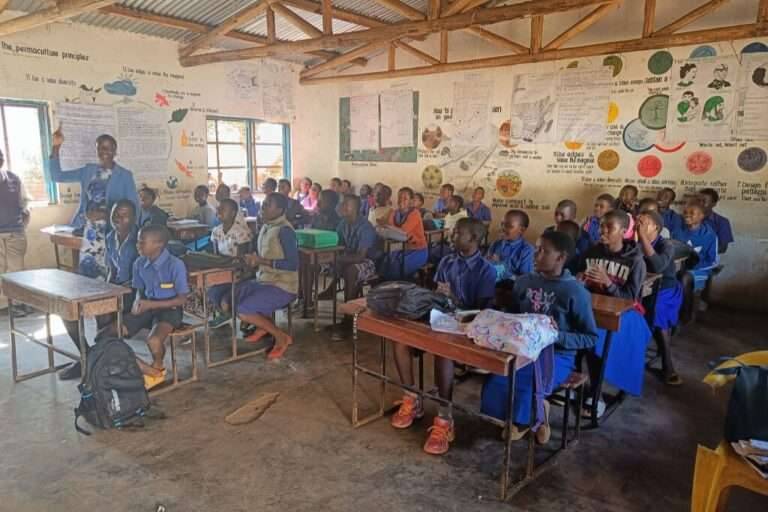
Discover Satemwa Tea Estate
-

 Select options This product has multiple variants. The options may be chosen on the product page
Select options This product has multiple variants. The options may be chosen on the product page -

Green Verbena
From €5.00Select options This product has multiple variants. The options may be chosen on the product page -

Handmade Treasure
From €5.00Select options This product has multiple variants. The options may be chosen on the product page -


African Citrus
From €8.00Select options This product has multiple variants. The options may be chosen on the product page
© 2024 Tea Kulture






